Now's the Time to Plant These Colorful Biennial Flowers
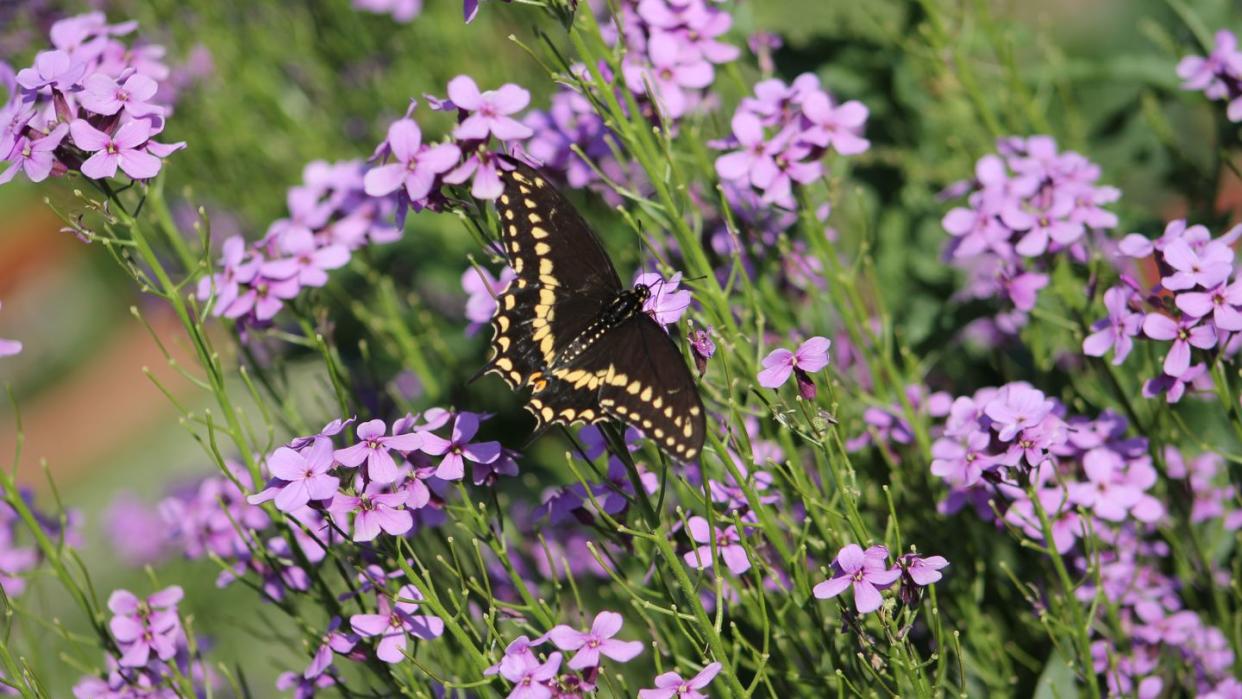
Biennial flowers are just what they sound like: They’re flowers that have a two-year life cycle. During their first year, biennials often focus on stabilization–growing roots, stems, and leaves. By year two, the magic happens, and they flower, seed, and then die. Other plants, including vegetables like carrots and herbs like parsley, are biennials too.
Biennials are of course distinct from annual flowers, which complete their full life cycle in a single year, and perennials, which come back year after year. Each plant’s lifecycle also depends greatly on the climate. What may be a biennial in some areas shows up as an annual in others. Keep reading to discover a few of our favorite biennial flowers to grow in your garden.
For more flower inspiration:
Foxglove
Foxglove is gorgeous. It’s one of the most well-known and best loved biennial flowers. It produces tall spikes of colorful, fanciful, tubular flowers in its second year, typically blooming from late spring to early summer. They prefer partial shade and well-drained soil.
Related: 25 Best Shade Plants to Beautify Your Garden

Hollyhock
After its establishing year, hollyhock blooms in the summer of its second year with large, showy flowers on tall stalks. It thrives in full sun and needs staking due to its height. Watch for rust, a common affliction.
Related: 32 Best Full Sun Plants and Flowers for Your Garden
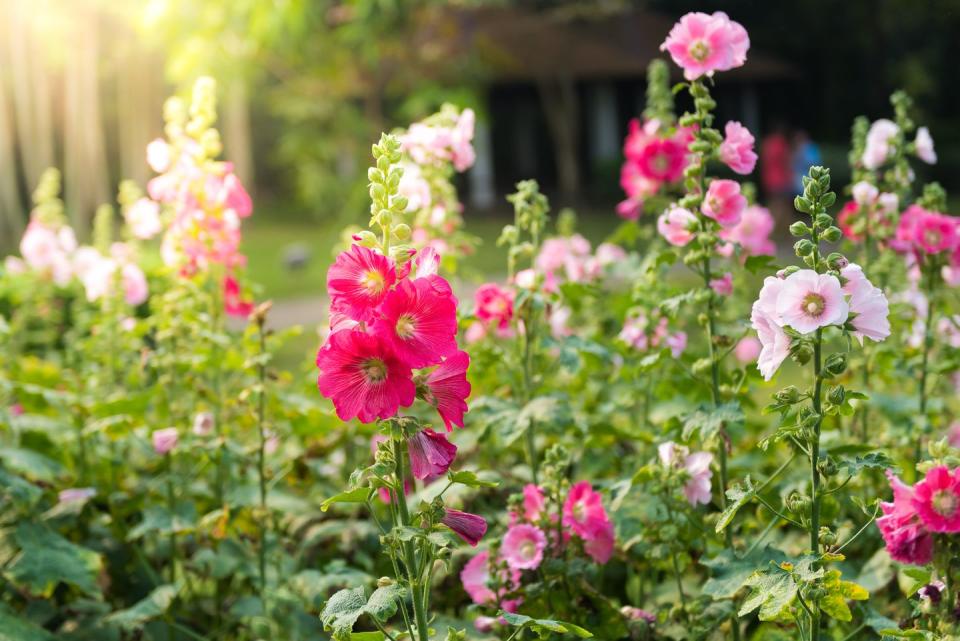
Carrot
Ever go back to the vegetable garden in the spring and notice that you have carrots you didn’t know you planted growing? While usually harvested in their first year, this vegetable will flower in the second year if left to its own devices.
Related: Companion Planting Guide and Chart

Parsley
Often grown as an annual herb, parsley will flower and go to seed in its second year. That means if you really want to use parsley for cooking consistently, you’ll want to plant it anew every spring. It prefers full sun and is pretty hardy.
Related: 15 Best Indoor Herb Gardens, Tested and Reviewed

Sweet William
These cluster flowers are easy to plant from seed. They bloom in late spring to early summer of their second year with groups of fragrant pink and white flowers. Don’t forget you planted them! They need well-drained soil and deadheading to prolong bloom time.
Related: The Definitive Guide to Deadheading Flowers

Evening Primrose
These plants develop pretty yellow flowers that bloom in the second year and open only in the evening. Primrose is reasonably drought tolerant and prefers full sun. According to the USDA, primrose is also known for its medicinal properties.
Related: 15 Best Flowers That Bloom at Night
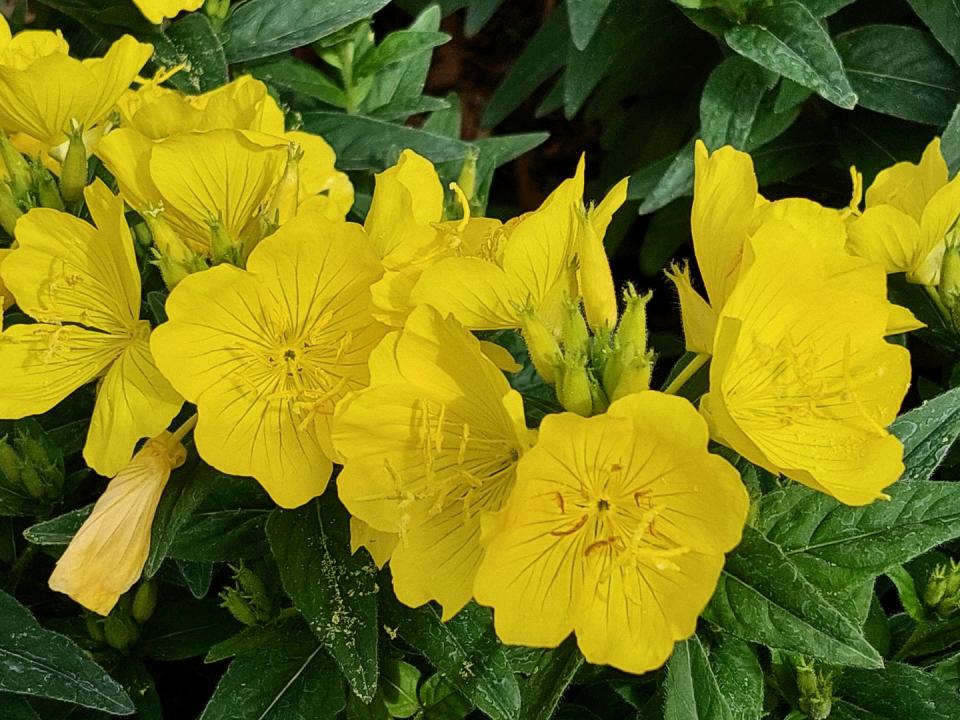
Black-Eyed Susan
These hearty blooms with their bright yellow petals and black centers are often seen in wildflower groupings on the side of the highway, emerging from midsummer to fall in their second year. They’re extremely low maintenance and thrive in full sun and well-drained soil.
Related: Chaos Gardening Is the Easiest Way to Grow Flowers

Teasel
Teasel flowers in late summer of its second year with tall, spiky blooms but can also be invasive per the USDA, so make sure to research your area before planting. They prefer full sun and moist soil. The seed heads attract birds, especially goldfinches.
Related: Flowers That Make Your Garden Pollinator Friendly

Campanula
Campanula is a vigorous grower that blooms from late spring to early summer with beautiful purple and white bell-shaped flowers. Also known as Canterbury bells, it prefers partial shade and moist, well-drained soil. Deadheading can encourage more blooms and extend their season.
Related: The Definitive Guide to Deadheading Flowers

Cow Parsnip
This lacy, tough plant blooms from the late spring to the early summer of its second year with large, beautiful white flowers. They prefer moist soil and can grow in partial shade. The sap of the cow parsnip can cause skin irritation, so it’s best to handle with gloves.
Related: 50 Pretty White Flowers to Plant in Your Garden
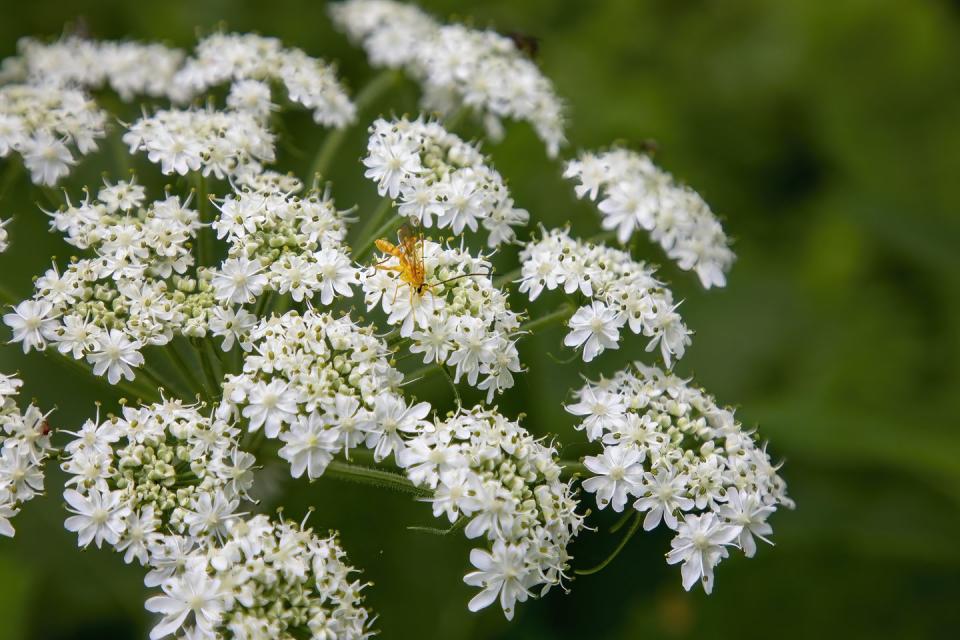
Honesty
This pretty purple flower with paper-thin blooms, also called lunaria, gets showy in the late spring of its second year. It prefers partial shade and well-drained soil. Its deep, dark seed pods are a favorite for dried flower arrangements.
Related: 25 Best Shade Plants to Beautify Your Garden
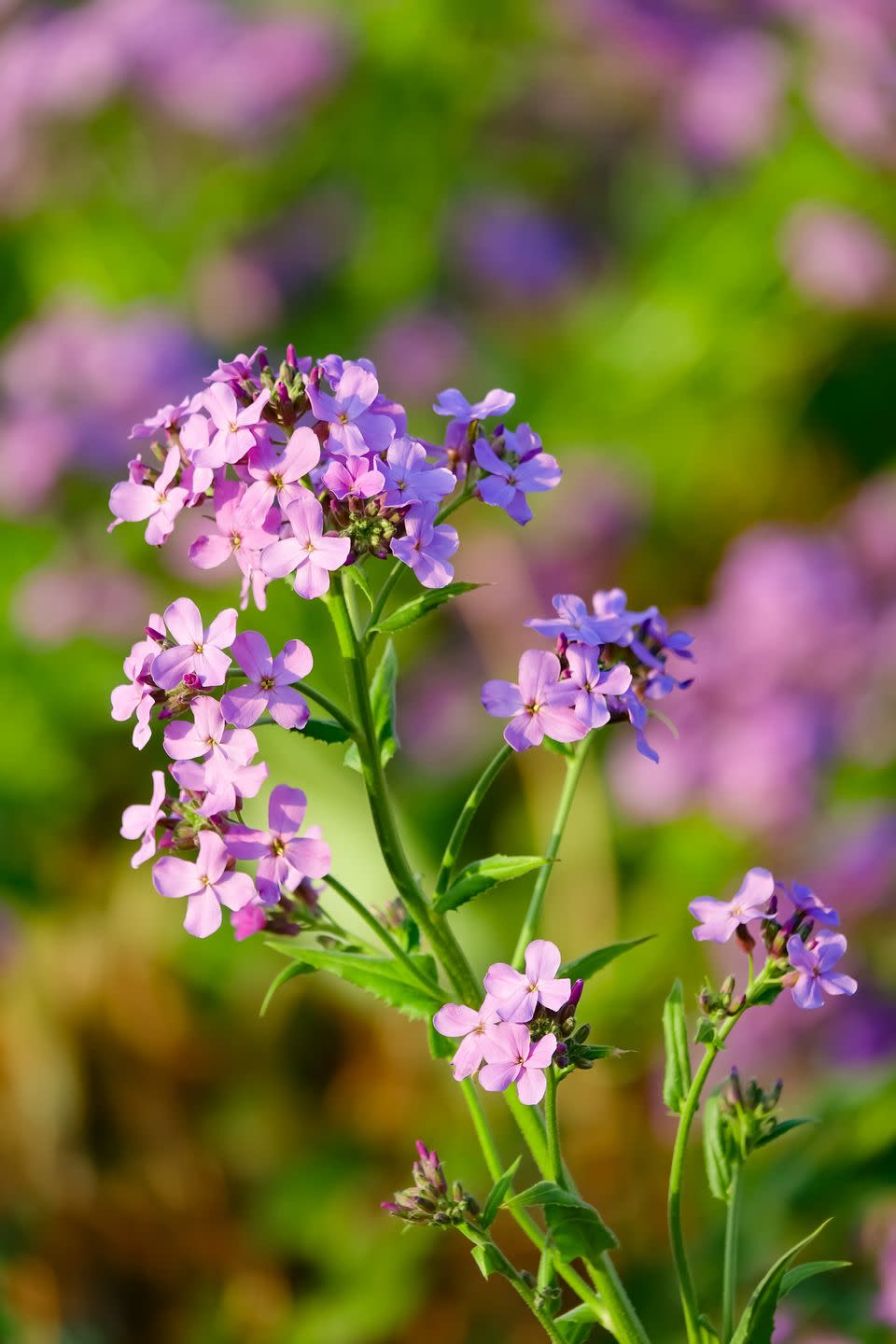
Angelica
Flowering in its second year with large, greenish-white flowers, angelica looks kind of like a carrot. It prefers partial shade and moist, well-drained soil, and it’s known for its medicinal properties and strong, musky odor.
Related: 25 Flower Bed Ideas That Are Bursting With Color

Queen Anne's Lace
Beautiful and delicate, these blooms are often considered a wildflower. Each one is actually a collection of thousands of mini white flowers. Queen Anne’s Lace can reach heights of up to four feet. It makes great pollinator plant, attracting butterflies and bees.
Related: 50 Pretty White Flowers to Plant in Your Garden

Forget-Me-Not
You might see these sweet blue blooms described as perennials, but they’re usually biennial flowers. They stay low to the ground but grow quickly in full or partial sun and moist, well-drained soil. The buds you get the second summer are actually pink, so this one is a great choice to bring a variety of color into your garden beds.
Related: 20 Flower Meanings and What They Symbolize 2024

Sweet Rocket
These purple blooms, which have a sweet fragrance similar to a violet, arrive early in the spring just after bulbs like daffodils start to show. They can thrive in full to partial sun and are a cottage garden favorite for attracting butterflies and bees.
Related: 12 Early Spring Flowers You'll Want in Your Garden
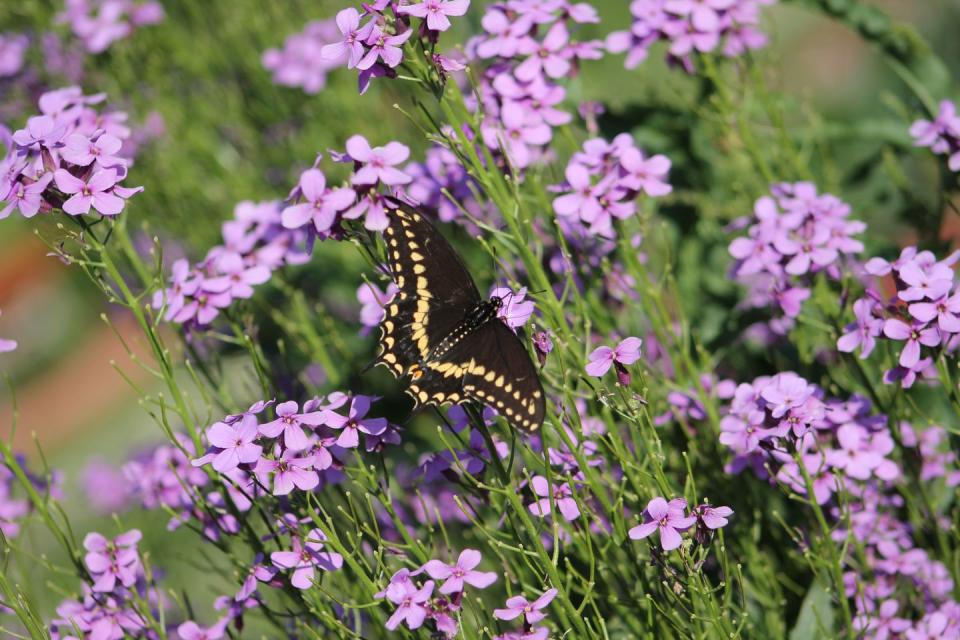
You Might Also Like


